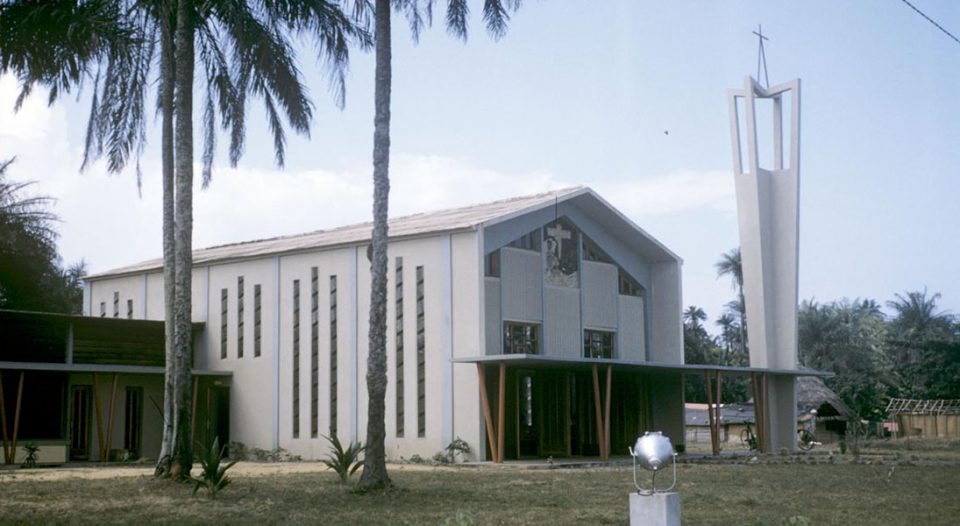“All we had to eat was red Jell-O, flour and communion wafers,” she remembered, her eyes gazing into the past.
A fundraiser for the ELCA’s global ministries, I was out gathering stories. On this day I was in Monrovia, Liberia, visiting Bette, an ELCA missionary.
Bette’s journey in Liberia preceded mine by 30 years. During the brutal civil war that destroyed the country—a war in which all Americans were ordered to evacuate—she stayed.
“I lost weight like my Liberian friends. I can’t remember how many belt notches I dropped,” she said quietly. “We smelled death everywhere. In fact, when members of St. Peter’s congregation were massacred, the church was filled with hundreds of rotting bodies—innocent men, women and children who were just seeking refuge.”
The year was 1990.
Bette said she’d known they were in trouble when they discovered all they had left was the red Jell-O, flour and communion wafers she’d mentioned before.
She had willingly entered that Liberian wilderness. And, when tempted—even ordered—to leave, Bette stayed.
She didn’t have to stay; she could have just cut and run. Even a modest missionary like Bette had the benefits of being a U.S. citizen: influence, choice, a passport.
But she stayed.
As we enter the season of Lent, Bette’s story is reminiscent of Jesus’ temptation in the wilderness: Then Jesus was led up by the Spirit into the wilderness to be tempted by the devil. He fasted forty days and forty nights and afterwards he was famished (Matthew 4:1-2).
Hearing these words, isn’t it tempting to coax, “Come on, Jesus, you’re God. Gods don’t go hungry. What could be accomplished by staying?”
I want Jesus to be fully human. I love visualizing his steep descent as I sing Martin Luther’s “From Heaven Above to Earth I Come.” But, selfishly, I don’t want God to be so human that Jesus’ descent into our wilderness doesn’t come without bungee cords.
…
The wilderness is not a place we seek. Yet, despite our attempts to avoid it, most of us have found ourselves wandering in it from time to time.
Perhaps it was the season in which your spouse left you. Or the surgeon’s words, “I’m so sorry. We tried.” Or when your trusted forms of prayer led your thirsty spirit to yet another dry well.
Ironically, it is the gushing waters of baptism that may sweep us to these parched, sandy places. Through baptism, we become part of God’s church for life. Rather, we are thrust into others’ lives, into places serving up only red Jell-O, flour and communion wafers, into circumstances where it’s easy to become famished.
…
There’s more to Jesus’ story. Jesus, who made the steep descent on our behalf, reveals God in the most unexpected places.
Then the devil left him, and suddenly the angels came and waited on him (Matthew 4:11).
It’s in the wilderness that the angels upheld him. Likewise, we find God’s love becoming ever more real in the parched, dry stretches of life.
There’s more to Bette’s story too. After the massacre in St. Peter’s, she was asked to burn it down. “Wanna know what?” said gentle Bette, with grit earned only in the wilderness. “I offered to help dispose of the bodies. But I would not burn that church.”
That was 27 years ago.
Ten days after our conversation, Bette and I—along with 350 other Liberians—worshiped in that church. Bathed in 12-part harmonies, surrounded by dancing and clapping Liberian Christians, Bette smiled at me and we knew—life had been restored.





